 Melissa Anderson
Melissa Anderson
The sea, the sea: in Mati Diop’s film, the migrant crisis
meets the paranormal.
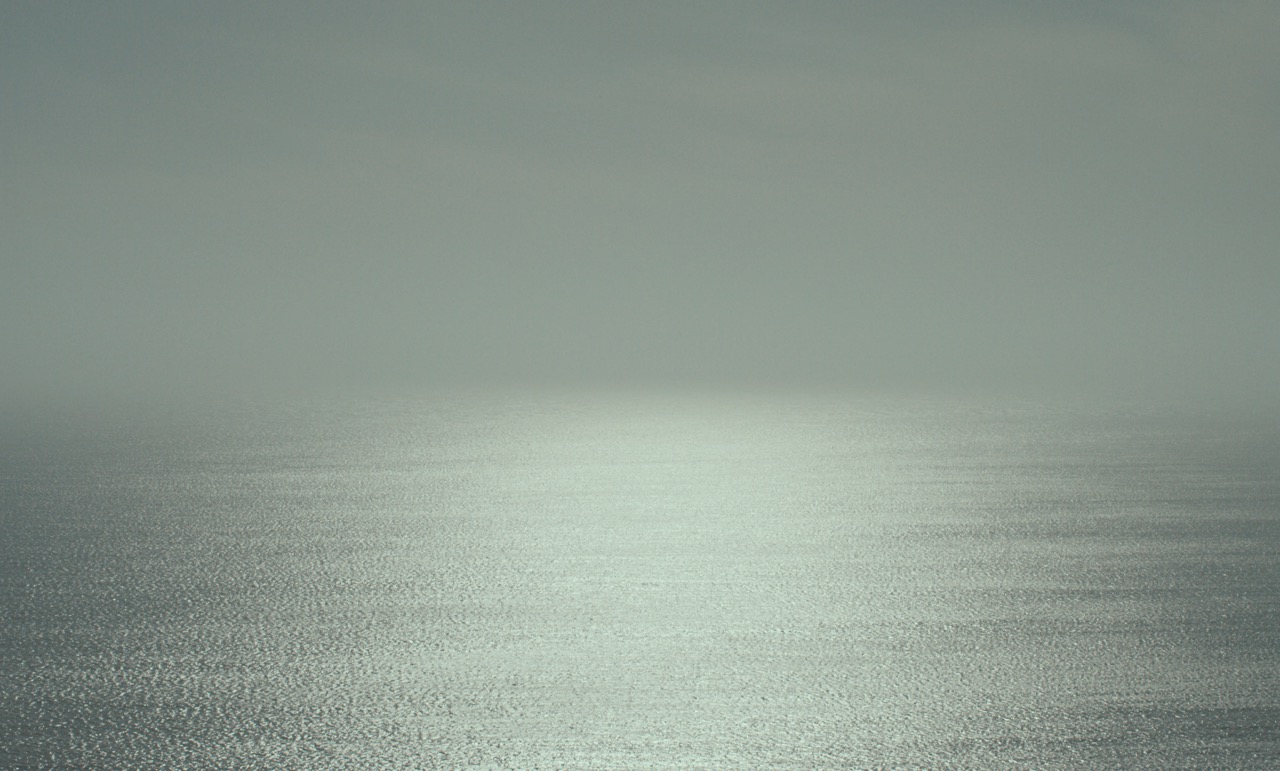
Atlantics. Image courtesy Netflix.
Atlantics, directed by Mati Diop, now playing in select theaters; screening at the Museum of Modern Art, 11 West Fifty-Third Street, New York City, November 22–28, 2019; and available on Netflix November 29, 2019
• • •
The sea beckons, seduces, overwhelms, and destroys in Atlantics, Mati Diop’s evocative, expansive ghost story set in Senegal. That the ocean in the title can serve all these purposes may explain its plural rendering. Similarly, Diop’s film, her first feature, isn’t only one thing or beholden to a sole genre. Nested within this tale of the reanimated dead is a mythic romance and a coldly furious allegory about the migrant crisis.
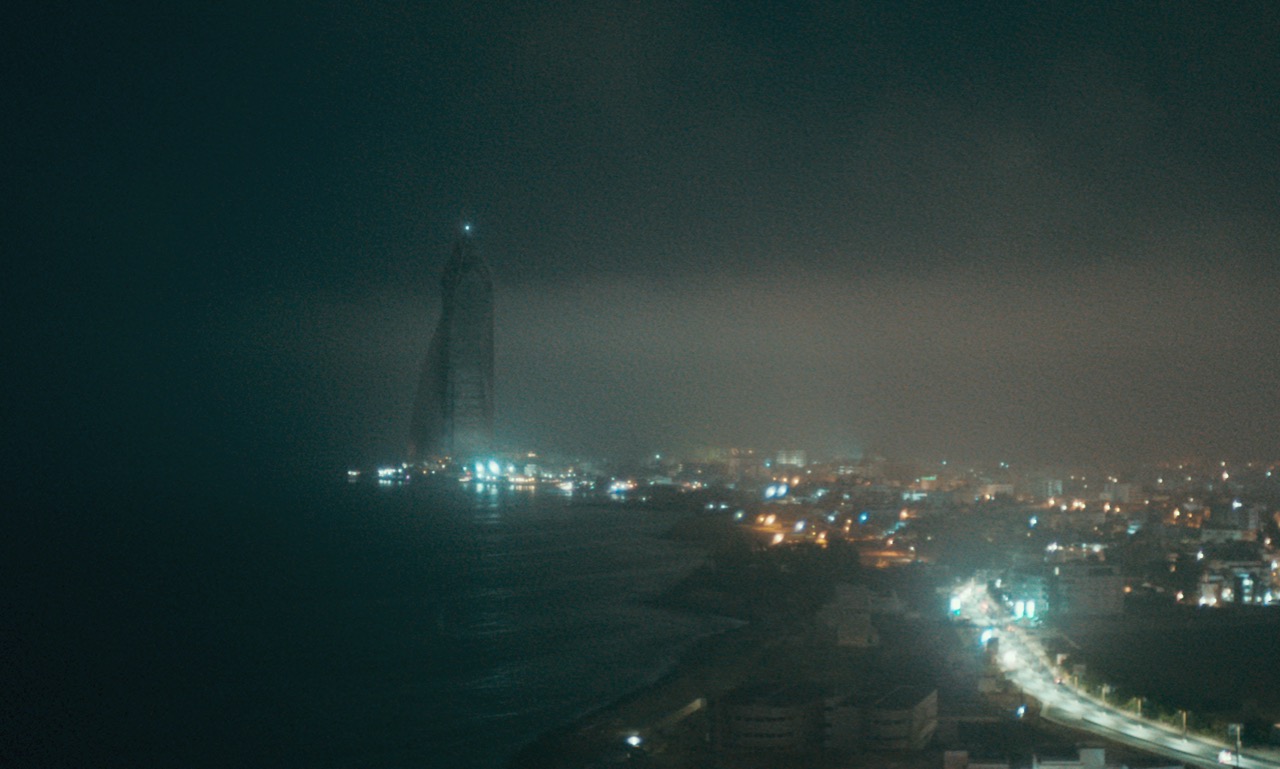
Atlantics. Image courtesy Netflix.
Atlantics continues some of the thematic elements found in Atlantiques (2009), one of Diop’s first shorts. (The year before Atlantiques, Diop made a terrific acting debut as a daughter devoted to her widowed father in Claire Denis’s 35 Shots of Rum.) In Atlantiques, three young men, seated around a beachside fire, consider the dangers of making the voyage, via pirogue, from Dakar, where there is little hope for employment, to Spain. A member of that trio later haunts this fifteen-minute project, his words spoken to us from beyond his watery grave. Atlantics, which Diop wrote with Olivier Demangel, likewise begins with men, most in their late teens and twenties, in an untenable financial situation: they haven’t been paid in several months for their construction work on an office tower, a Gehry-esque grotesquerie, and feel they have no choice but to make the perilous expedition to Europe on a rickety boat.
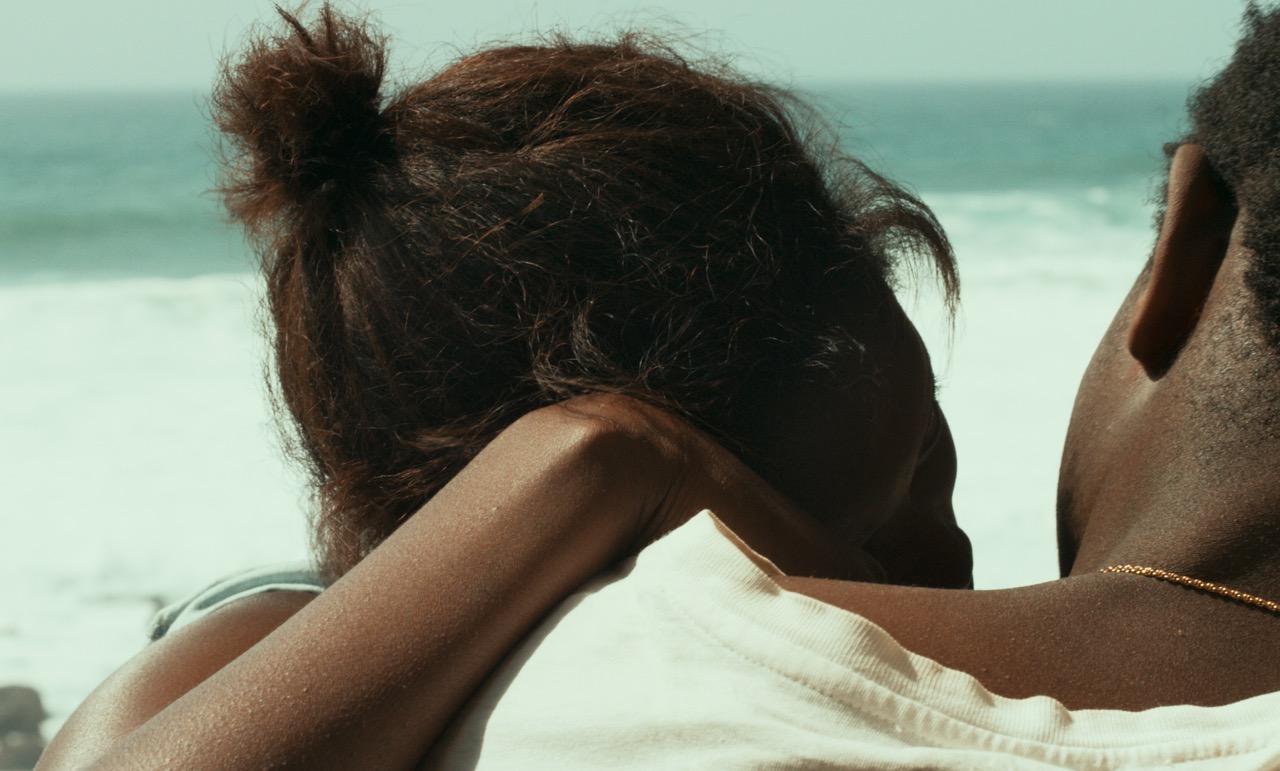
Mama Sané as Ada and Ibrahima Traoré as Souleiman in Atlantics. Image courtesy Netflix.
One of those weary laborers, Souleiman (Ibrahima Traoré), spends his last few hours before heading out to sea with his girlfriend, Ada (Mama Sané). They steal away to an abandoned building along the shore; they must keep their romance hidden, for Ada, who is seventeen, is soon to wed the wealthier Omar (Babacar Sylla) in an arranged marriage. Their relationship isn’t the only secret: in between nuzzling and kissing, Souleiman never reveals to Ada his imminent odyssey. “You’re just watching the ocean. You’re not even looking at me,” she protests.
Again and again in Atlantics, Diop and her cinematographer, Claire Mathon, return to frame-filling shots of the sea, emphasizing its beauty (especially in crepuscular light) and its terrifying power. Pointedly, we don’t see Souleiman and his cohort set sail; Atlantics follows not those who leave but those who—like Ada, her peers, and other women who are the lovers, wives, or relatives of the doomed travelers—have stayed behind.
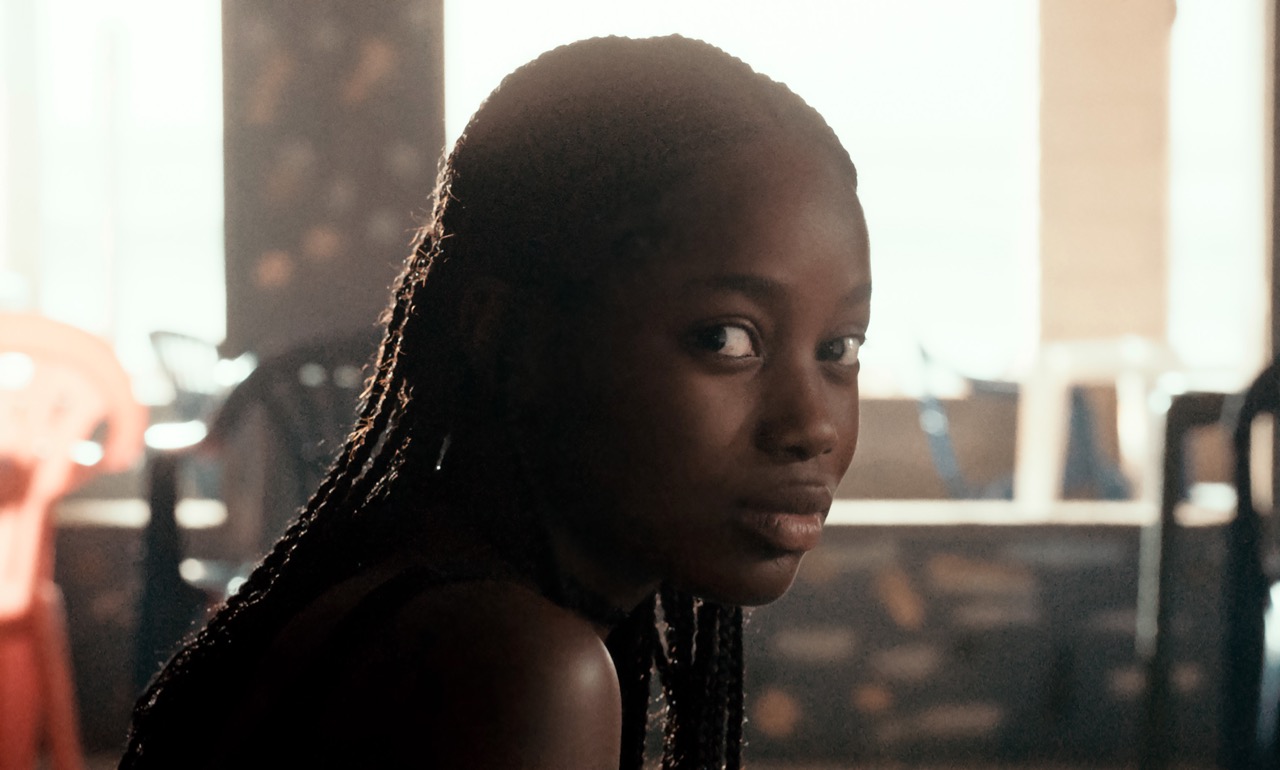
Mama Sané as Ada in Atlantics. Image courtesy Netflix.
But to remain does not mean to sit idly by. Headstrong Ada quarrels frequently: with her more conservative friend Mariama (Mariama Gassama), never seen without her hijab; with her club-loving, selfie-mad pal Fanta (Amina Kane); with her avaricious parents, who think of their daughter’s upcoming nuptials only in terms of riches gained; with Omar, a lordly Europhilic smoothie with a shaved head and trim goatee. She is also an expert at wordlessly communicating her displeasure. The look of icy disdain Ada shoots Omar after he gives her a rose-colored iPhone (“You’ll see, it’ll change your life”) at a luxe hotel bar could stop a clock or shut down vital organs. (Uniformly alert and dynamic, the performers in Atlantics are all first-time actors.)
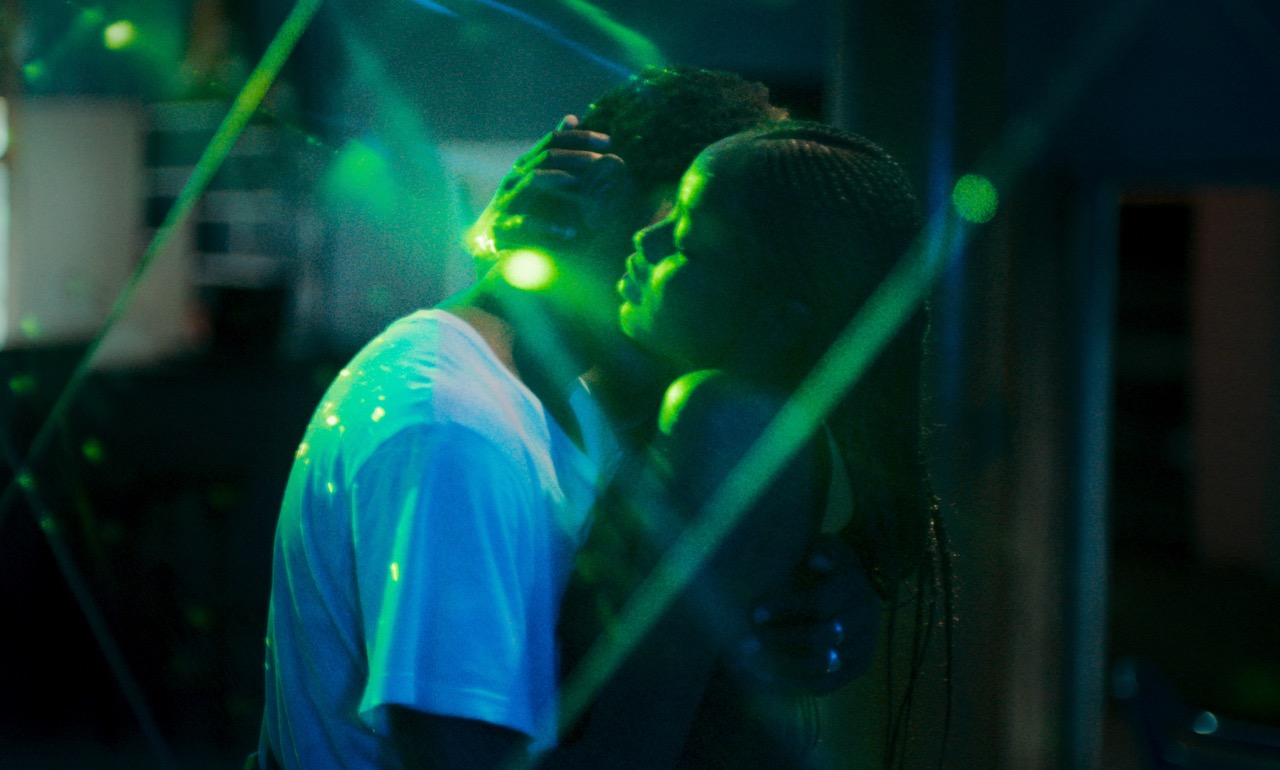
Mama Sané as Ada in Atlantics. Image courtesy Netflix.
A close-up of that delicately hued Apple product, which Ada holds with supreme indifference, exemplifies Diop’s talent for isolating striking visual details. A hot-pink halter top Ada wears under a dark blazer flashes like a beacon during an evening seaside stroll. Green laser lights gambol across her face as she, after learning that Souleiman and his buddies have set out on their dangerous mission, sinks into a banquette at the bar run by her friend Dior (Nicole Sougou). The most ineradicable image, though, may be the charred honeymoon bed—originally an imposing, pristine white—that Ada and Omar never lie in. The fire that has destroyed the mattress was ignited by a supernatural force, a mystery that a hapless police investigator named Issa (Amadou Mbow) will try to solve.
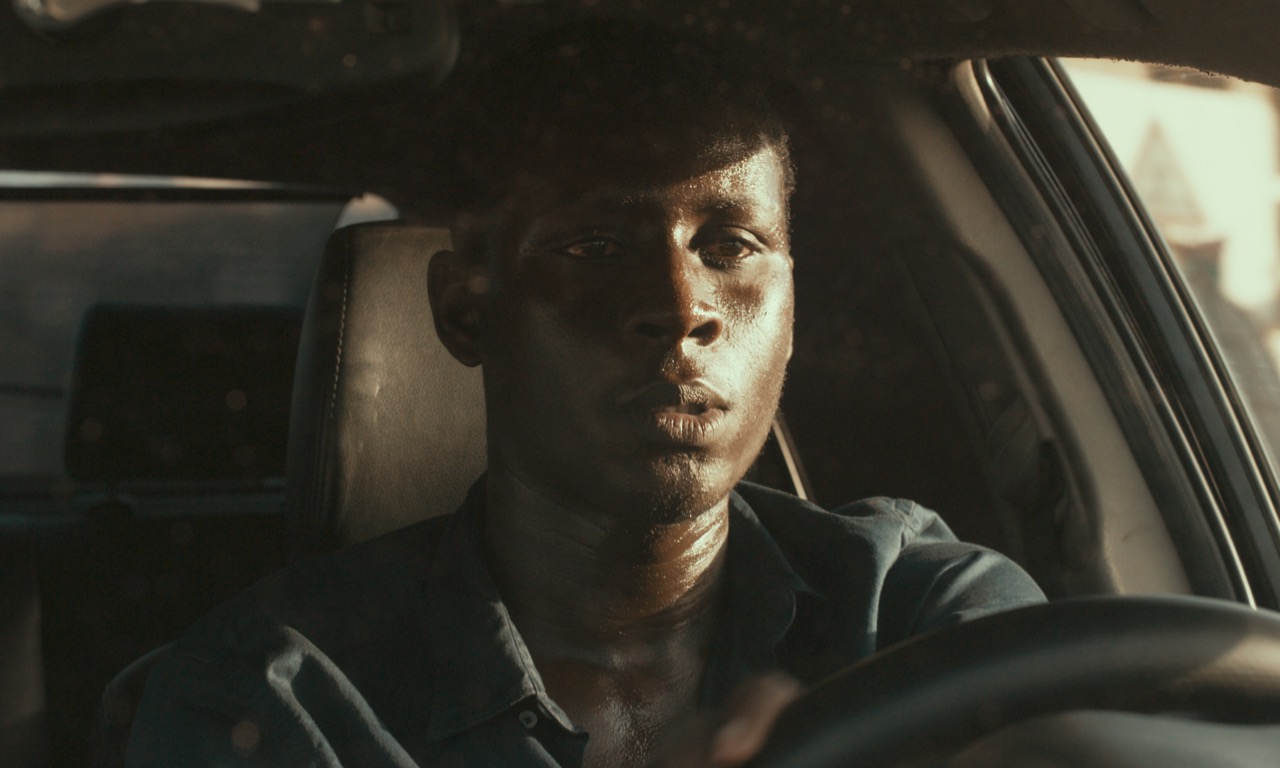
Amadou Mbow as Issa in Atlantics. Image courtesy Netflix.
More paranormal activity ensues: the young men who have perished at sea inhabit the bodies of the women they loved, a possession whose initial symptom is a debilitating fever, followed by a transformation into a wrathful wraith. The women become phantom menaces through humble special effects, in what appears to be little more than some spooky-looking contact lenses. But their ire jolts as they seek out the building magnate who exploited their beaux—and who in many ways is responsible for their deaths.
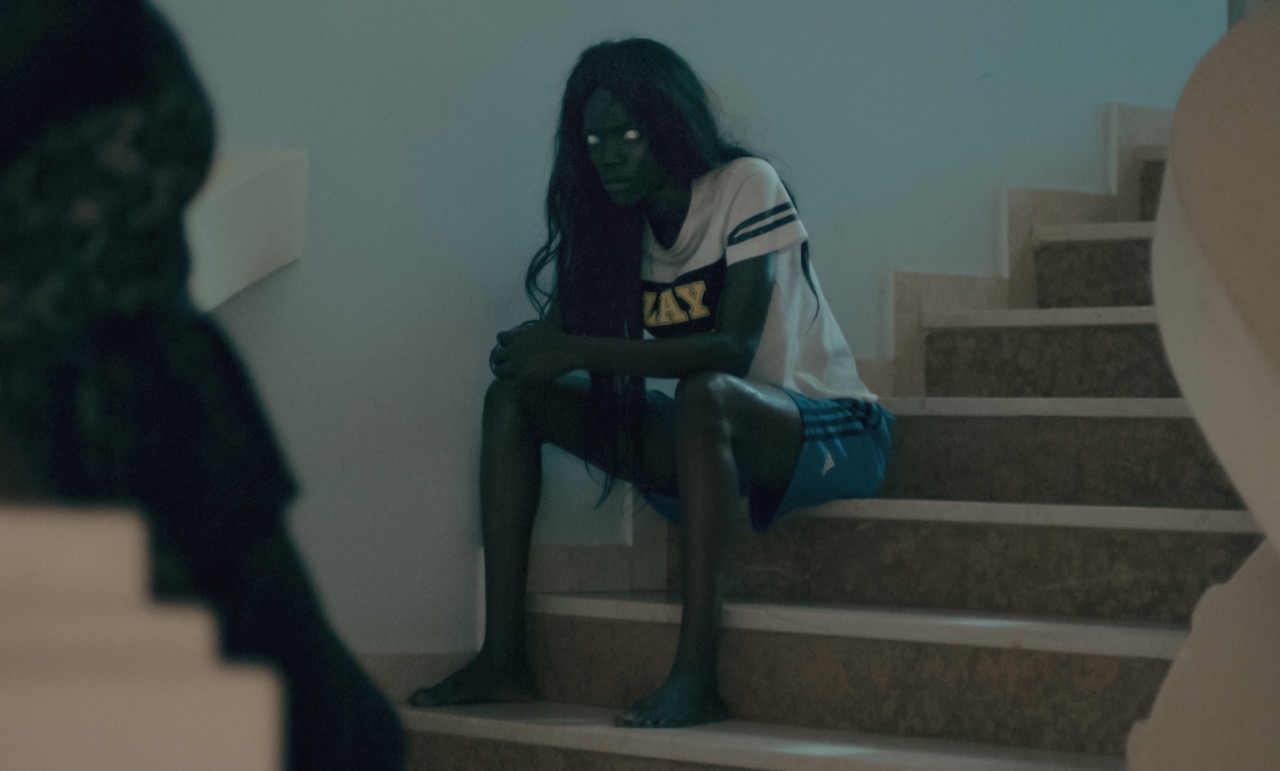
Atlantics. Image courtesy Netflix.
Other, more benevolent specters drift through Atlantics. Born in Paris in 1982, Diop, who identifies as French Senegalese, is the niece of the great Senegalese filmmaker Djibril Diop Mambéty (1945–98), whose Touki Bouki, from 1973, stands as a milestone of postcolonial African cinema. Diop saluted her relative’s landmark work in her medium-length project A Thousand Suns (2013), a nimble docufiction that catches up, forty years on, with the nonprofessional actors who portrayed the charismatic outlaw couple in Touki Bouki: Magaye Niang, who played the motorcycle-riding dandy Mory, has remained in Dakar, while Mareme Niang, cast as Anta, Mory’s haughty university-student girlfriend, left for the States. (Real life mirrored art: in Mambéty’s movie, Anta departs for Paris and Mory stays in Senegal.)
Diop has said that while writing Atlantics, “I realized that besides Touki Bouki . . . I hadn’t grown up with any black couple figures worthy of Romeo and Juliet.” Despite sharing few scenes together, Ada and Souleiman persist in the mind as paradigmatic young lovers, their electric (though covert) connection conveyed in an early knockout segment: Souleiman, just finished with another grueling workday, sees Ada, surrounded by friends. They stand on opposite sides of a railway track. In the gap between each passing train car, we observe how they gaze at each other—a look of profound devotion and desire.
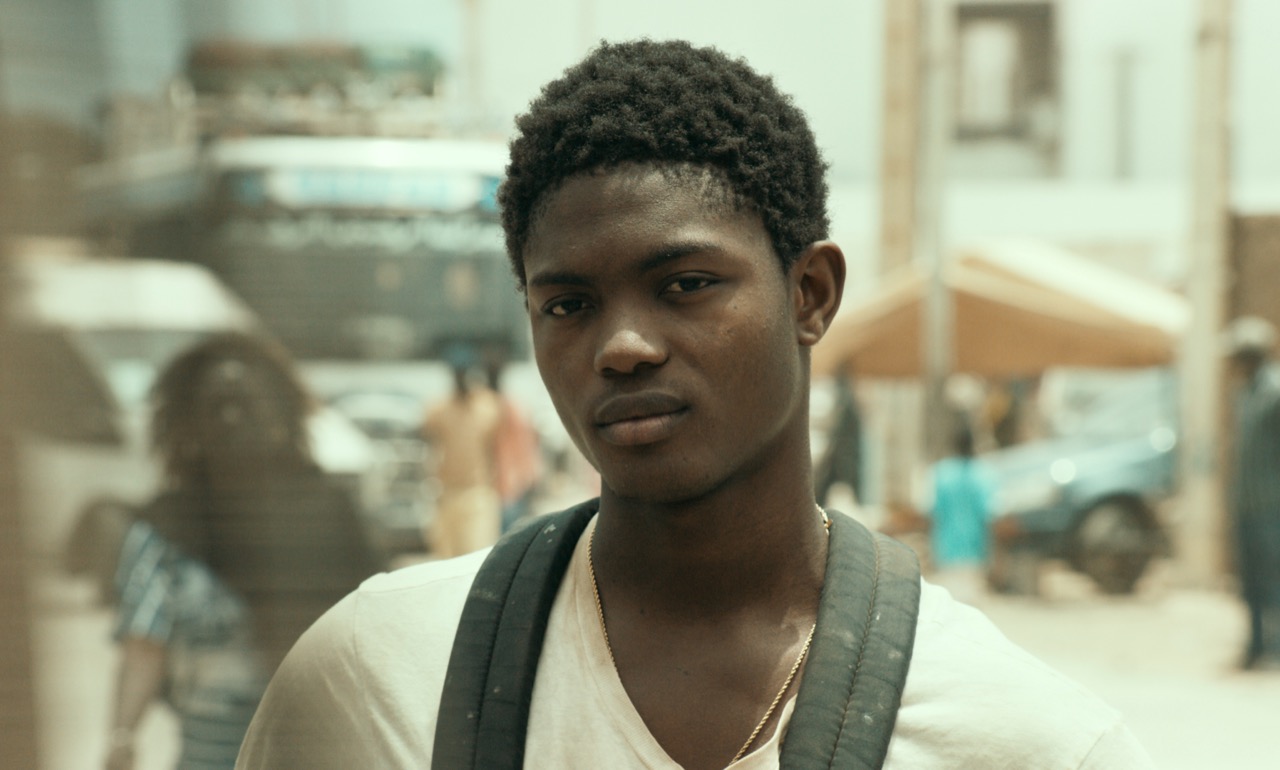
Ibrahima Traoré as Souleiman in Atlantics. Image courtesy Netflix.
Their ardor is nearly as fathomless as the ocean that swallows Souleiman. Questions of exile—when and if to leave, when and if to stay—shaped Touki Bouki and dominate A Thousand Suns and Atlantics. A quote from Giovanni’s Room (written by James Baldwin not too long after his expatriation to France) that Diop uses in A Thousand Suns remains apposite for Atlantics: “You don’t have a home until you leave it, and then, when you have left it, you never can go back.” Atlantics beautifully tweaks this remark, as the dead return to reinvigorate the living, who must now chart a vast, unknown future.
Melissa Anderson is the film editor of 4Columns.